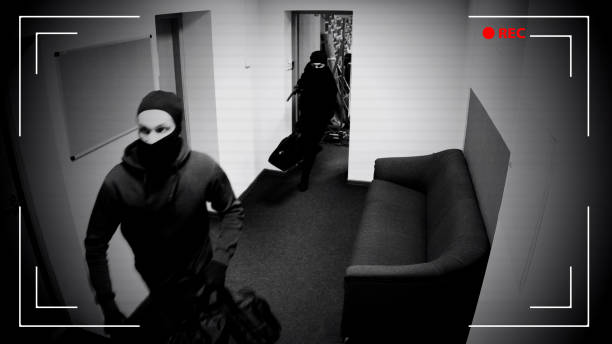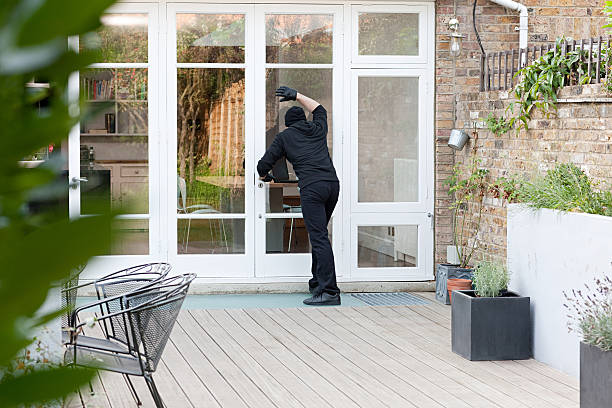Larceny is a serious crime in Australia, with severe penalties. But despite the risks, thieves continue to target businesses, homes, and individuals. In 2022, there were almost half a million offences reported to the Australian Bureau of Statistics (ABS). This represents an 8% increase from the year 2021.
The most common type of this offence in Australia is theft from a person. This includes pickpocketing, purse snatching, and bag theft. Other common types include theft from a motor vehicle, theft from a building, and theft of goods from a shop.
Larceny can have a devastating impact on victims. Not only do they lose their property, but they may also experience fear, anger and anxiety. This article will discuss sections 116 to 125 of the Crimes Act 1900 (NSW).
What Are the Elements of Larceny?
When can you say that there is taking in a given situation? You have to consider whether all elements are present. The elements of this crime are the following:
- that the property must belong to someone other than the accused;
- the accused must take it and carry it away; and
- the taking must be without the consent of the owner of the property.
Moreover, the offender’s mental state at the time of the taking of property is also relevant in determining if this offence exists. These include if the offender:
- took the property with the intention of permanently depriving the owner of it;
- took the property without a claim of right made in good faith; and
- took the property dishonestly.
Sections 116 and 117: Nature and Punishment for Larceny
Section 116 declares that every taking, whatever the value of the property stolen, shall be deemed to be of the same nature, and shall be subject to the same incidents in all respects, as grand larceny.
Furthermore, section 117 stipulates the penalty for the commission of such offence. Any person who commits this offence shall be liable to imprisonment for five (5) years. Moreover, for any other indictable act punishable like larceny also they shall be liable to imprisonment for five (5) years.
Section 118: Intent to Return Property No Defence
Section 118 invalidates intent of a stolen property as a defence to such act. It states that at the trial of person accused, the following acts will not acquit the accused:
- if it is shown that the accused took the property in question for his or her own use or for someone else’s, but planned to give it back.
- if it was money, the accused intended to return an amount equal to what was taken.
Section 119: Verdict Where Several Takings Proved
This section states that when a person is on trial for this crime and it turns out that the property he or she is accused of stealing at one time was actually taken at different times, the prosecutor doesn’t have to choose which taking to focus on unless the judge tells them to. However, evidence can’t be given of any taking that happened more than six months after another taking.

Section 120: Trial for Larceny – Verdict of Embezzlement Etc
Section 120 provides that if during the trial of a person for this crime it appears that the person took the property in such manner as to amount in law to the offence of:
- embezzlement or fraudulent misappropriation
- fraudulent application
- disposition of property as a clerk, servant, or person employed in Public Service,
- obtaining property by any false pretence or by any wilfully false promise, or partly by a false pretence and partly by a wilfully false promise
the jury may acquit the person charged of this crime, and find the person guilty of such other offence. The person shall then be liable to punishment accordingly.
Section 121: Verdict of “Larceny or Receiving”
Section 121 sets out the rule that during the trial of a person accused of this offence or any crime that includes:
- larceny
- unlawfully receiving the property charged to have been stolen while knowing it was stolen
if the jury finds that the person either stole or unlawfully received the property in question, but they can’t say which crime the person committed, they will not acquit the person by such reason.
However, the accused will be liable for this offence, or for the unlawful receiving, whichever of the two offences is subject to the lesser punishment.
Section 122: Verdict Where Persons Indicted for Joint Larceny or Receiving
This Section states that during the trial of two or more accused of larceny and illegally receiving property, the jury can:
- find all of them guilty of either stealing or illegally receiving the property or part of it
- find one or more of them guilty of stealing and the other or others guilty of illegally receiving the property or part of it.
Section 123: Verdict of Minor Indictable Offence
In section 123, when a person is on trial for this offence, if it turns out that the property in question was taken, used, or kept in a way that amounts to a minor indictable offence, the jury may acquit the person of the crime charged and find the person guilty of the minor indictable offence. The person will then be punished according to the minor indictable offence.
Section 124: Fraudulent Appropriation
Section 124 sets out the rule on fraudulent appropriation. Where, upon the trial of a person for this offence, it appears that:
- the person had fraudulently appropriated to their own use or that of another, the property in respect of which the person is indicted, although the person had not originally taken the property with any fraudulent intent
- the person had fraudulently retained the property to secure a reward for its restoration
the jury may return a verdict accordingly, and the person shall be liable to imprisonment for two years, a fine of 20 penalty units, AUD 2200, or both.

Section 125: Larceny by Bailee
Whoever, as a bailee of any property:
- fraudulently takes or changes the property or any part of it
- fraudulently takes or changes any property into or for which it has been changed or exchanged to his or her own use or the use of someone other than the owner, even if he or she does not break bulk or otherwise end the bailment
will be guilty of larceny and authorities could indict them for that crime. The accused is a bailee even though he or she may or may not agree to return or give back the specific property that was given to them.
Need Legal Advice?
If you are facing a charge of larceny, it is important to speak with an experienced lawyer as soon as possible.
JB Solicitors can explain the charges against you and your possible penalties. Moreover, we can also discuss your options for handling the case, such as pleading guilty, going to trial, or seeking a diversion program.
Contact us today.
